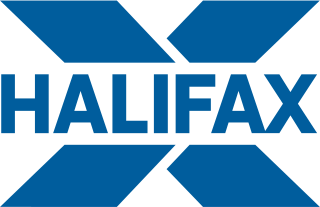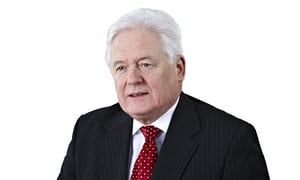
John Anthony Fingleton CBE (born 21 September 1965) is an Irish-British economist and former CEO of the Office of Fair Trading. He is Senior Independent Member of the Innovate UK Board.

John Anthony Fingleton CBE (born 21 September 1965) is an Irish-British economist and former CEO of the Office of Fair Trading. He is Senior Independent Member of the Innovate UK Board.
Fingleton was born in September 1965, [1] he studied economics at Trinity College Dublin and Nuffield College Oxford, writing his PhD under supervision from James Mirrlees and graduating with a DPhil in 1991.
After graduating from Oxford, Fingleton taught economics at the London School of Economics and Trinity College Dublin. While an academic at TCD, he advocated deregulation of the Irish taxi market [2] and a relaxation of restrictive licensing laws in alcohol retail. [3] In 2000, Fingleton was appointed chairman of the Competition Authority of Ireland - where he made a number of prominent hires including former FTC Commissioner Terry Calvani. Fingleton was also responsible for managing the introduction of the Irish Competition Act 2002 into law. [4]
In 2005, Fingleton was appointed Chief Executive of the Office of Fair Trading. [5] While at the OfT, he led investigations into bank overdraft fees, [6] competition between supermarkets, [7] credit cards, [8] and the PPI market, [9] as well as an investigation into UK airports that led to the breakup of BAA. [10] Fingleton was criticised during his tenure for his high salary, which at £275,000 made him the second-highest paid civil servant in the UK, after the Governor of the Bank of England. [11]
Fingleton left the OfT in 2012, just before it and the Competition Commission were merged to form the new Competition and Markets Authority. He was succeeded by Clive Maxwell. [12]
Fingleton now runs a company advising businesses with competition and regulation problems. In 2015, he called for BT and Openreach to be split up to increase competition in the broadband market. [13] In 2018, he wrote a report attacking the government's plans to expand the national security test in mergers, which he warned would be damaging to the UK economy. [14]
Fingleton is a board member of UKRI and Fingleton was appointed Commander of the Order of the British Empire (CBE) in the 2022 New Year Honours for services to the economy and innovation. [15]

Halifax is a British banking brand operating as a trading division of Bank of Scotland, itself a wholly owned subsidiary of Lloyds Banking Group.

Ian John Macfarlane is an Australian economist, and central banker. After an early career as an economist in Melbourne, Sydney, Oxford and Paris, he joined the Reserve Bank of Australia in 1979 and rose to become Governor from 1996 to 2006. After retiring from the Reserve Bank, he became a company director, economic consultant and author of two books.
The Office of Fair Trading (OFT) was a non-ministerial government department of the United Kingdom, established by the Fair Trading Act 1973, which enforced both consumer protection and competition law, acting as the United Kingdom's economic regulator. The OFT's goal was to make markets work well for consumers, ensuring vigorous competition between fair dealing businesses and prohibiting unfair practices such as rogue trading, scams, and cartels. Its role was modified and its powers changed with the Enterprise Act 2002.

John McFarlane OBE is a British businessman. He served as Group Chairman of Barclays from 2015 to 2019.
Payment protection insurance (PPI), also known as credit insurance, credit protection insurance, or loan repayment insurance, is an insurance product that enables consumers to ensure repayment of credit if the borrower dies, becomes ill or disabled, loses a job, or faces other circumstances that may prevent them from earning income to service the debt. It is not to be confused with income protection insurance, which is not specific to a debt but covers any income. PPI was widely sold by banks and other credit providers as an add-on to the loan or overdraft product.
Banking in the United Kingdom can be considered to have started in the Kingdom of England in the 17th century. The first activity in what later came to be known as banking was by goldsmiths who, after the dissolution of English monasteries by Henry VIII, began to accumulate significant stocks of gold.
RTÉ Lyric FM is an Irish classical-music and arts radio station, owned and operated by RTÉ. The station, which is based in Limerick, was launched in 1999 and is available on FM throughout Ireland, on Sky Digital satellite in Ireland and the United Kingdom, and via the Internet worldwide.

The Payments Council was an organisation of financial institutions in the United Kingdom, which set strategy for UK payment mechanisms from 2007 until 2015.
Peter James Niven Sinclair was a British economist. He was Professor, and subsequently Emeritus Professor, in Economics at the University of Birmingham. Previously, he had been a fellow and tutor at Brasenose College, Oxford.

The Traditional Unionist Voice (TUV) is a unionist political party in Northern Ireland. In common with all other Northern Irish unionist parties, the TUV's political programme has as its sine qua non the preservation of Northern Ireland's place within the United Kingdom. A founding precept of the party is that "nothing which is morally wrong can be politically right".

Eurfyl ap Gwilym is a Welsh economist, deputy chairman of the Principality Building Society, and a Plaid Cymru politician.

The Ministry of Economy of Azerbaijan Republic is the central executive body responsible for implementing state policy and regulation in the following areas: formulating economic policy of Azerbaijan, producing macroeconomic projections, creating a favorable environment for economic development and growth, encouraging investment activity, developing entrepreneurship and industry, regulating the licensing and permit system, protecting, developing and encouraging competition, protecting the rights of consumers, implementing state procurement policy, ensuring full and timely introduction of taxes and other mandatory payments relating to the authority of the Ministry, in the state budget, management of government assets, privatization, establishing state land management system, conducting state registration and single state cadastre of immovable property.

Kingspan Group plc is a building materials company based in Ireland trading in over 70 countries with 159 factories employing over 15,000 people. The company operates with five divisions; Insulated Panels, Insulation, Light & Air, Water & Energy, and, Data & Flooring.

The Single Supervisory Mechanism (SSM) is the first pillar of the European banking union and is the legislative and institutional framework that grants the European Central Bank (ECB) a leading supervisory role over banks in the EU. The ECB directly supervises the larger banks while it does it indirectly for the smaller ones. Eurozone countries are required to participate, while participation is voluntary for non-eurozone EU member states. In October 2020, two non-Eurozone countries joined the European banking supervision mechanism through a process known as close cooperation: Bulgaria and Croatia. As of early 2021, the SSM directly supervises 115 banks across the Union, representing almost 82% of banking assets of these countries. The SSM, along with the Single Resolution Mechanism are the two central components of the European banking union.

Haroon Bhorat is Professor of Economics and Director of the Development Policy Research Unit (DPRU) at the University of Cape Town. His area of research has concentrated on labour economics and poverty/income distribution mainly in his native South Africa, and recently, been expanded to other parts of Africa - in which he is world-renowned authority.
Michael R. Strain is an American economist. He is currently the Director of Economic Policy Studies and the Arthur F. Burns Scholar in Political Economy at the American Enterprise Institute. He is also a research fellow at the IZA Institute of Labor Economics, and a columnist for Project Syndicate. Strain's research focuses on labor economics, macroeconomics, public finance, and social policy.

Joachim Starbatty is a German professor of economics and politician.
Timur Muratuly Suleimenov is a Kazakh politician who served as Minister of National Economy from 28 December 2016 to 25 February 2019.
James H. Peoples Jr. is an American economist who is a professor of economics at the University of Wisconsin–Milwaukee, and a former president of the National Economic Association and the Transportation and Public Utilities Group. He is an expert in the economics of transportation and transportation labor issues.
Walpole is the official body for the UK's luxury goods sector. It represents the interests of 270 British brands and members include Rolls-Royce, Burberry, Claridge's and Harrods. Its purpose is to promote, protect and develop a sector that in 2019 was estimated to be worth £48 billion to the UK economy.
{{cite web}}: Missing or empty |title= (help){{cite web}}: CS1 maint: url-status (link){{cite web}}: CS1 maint: url-status (link){{cite web}}: CS1 maint: url-status (link){{cite web}}: CS1 maint: url-status (link){{cite web}}: CS1 maint: url-status (link)